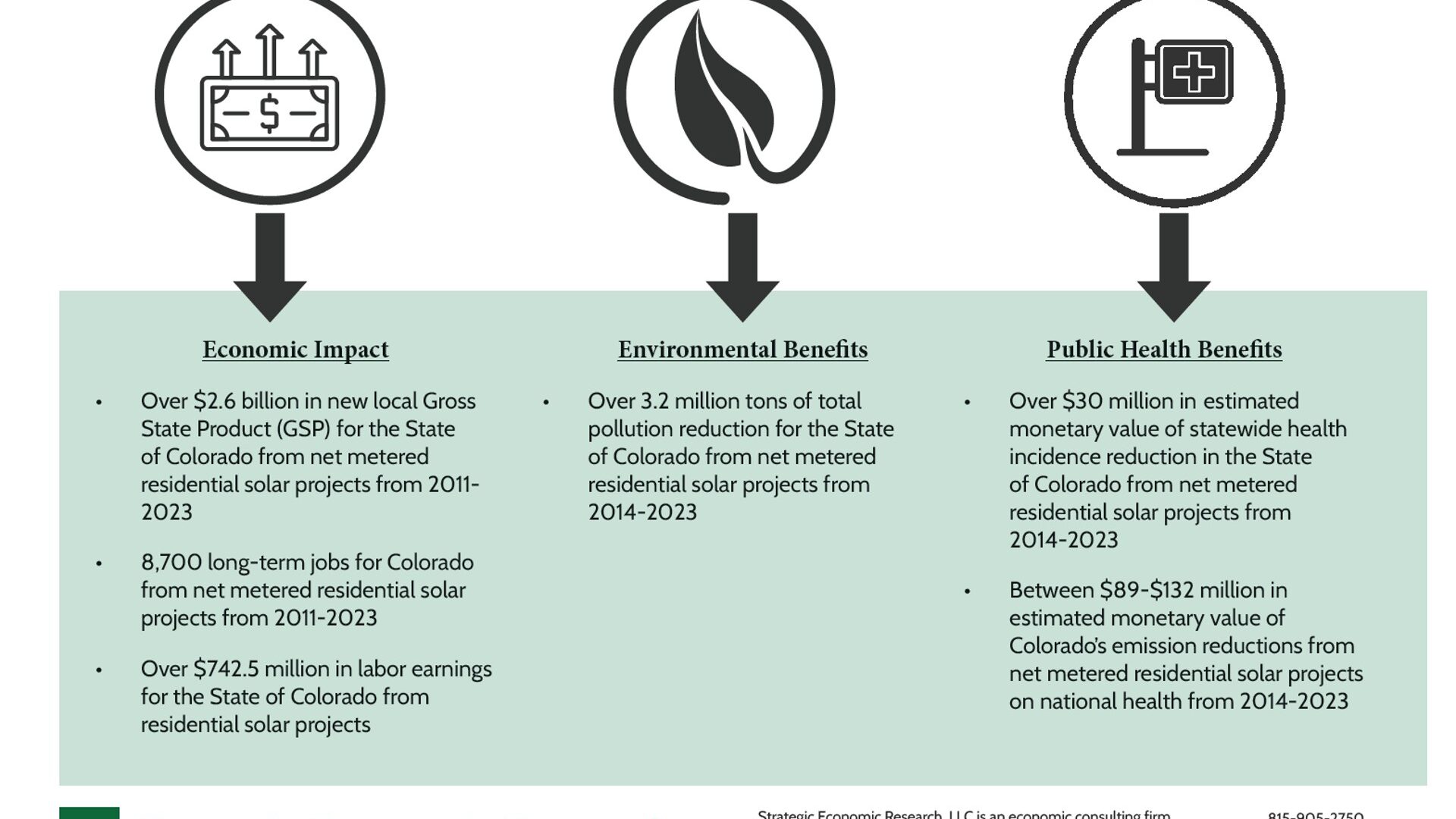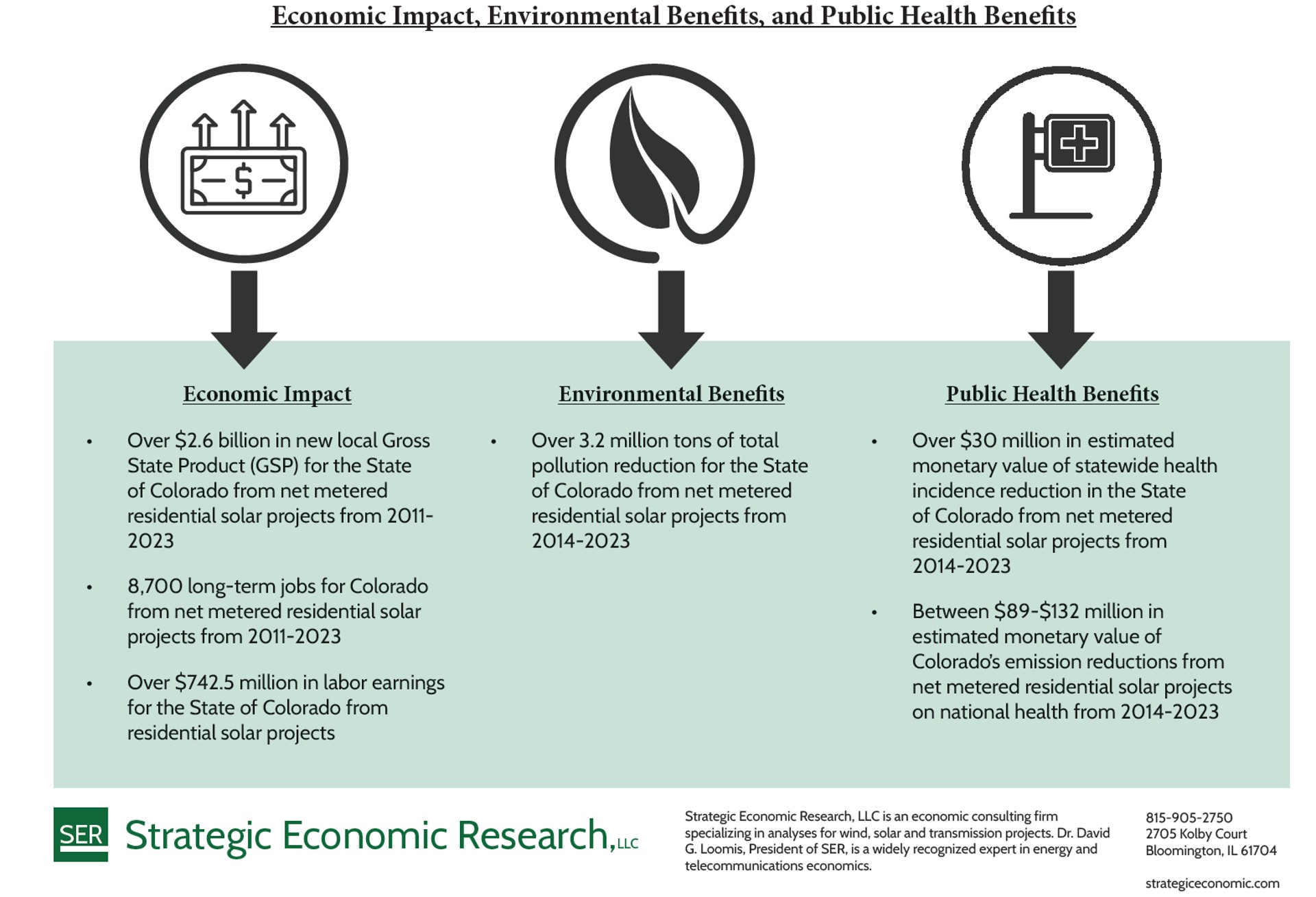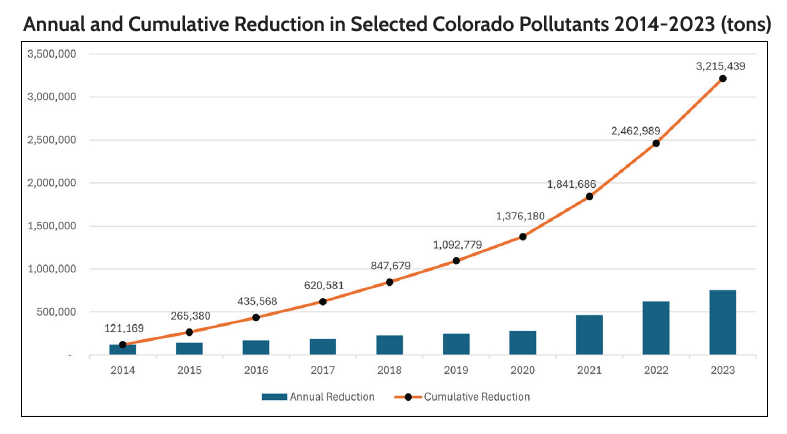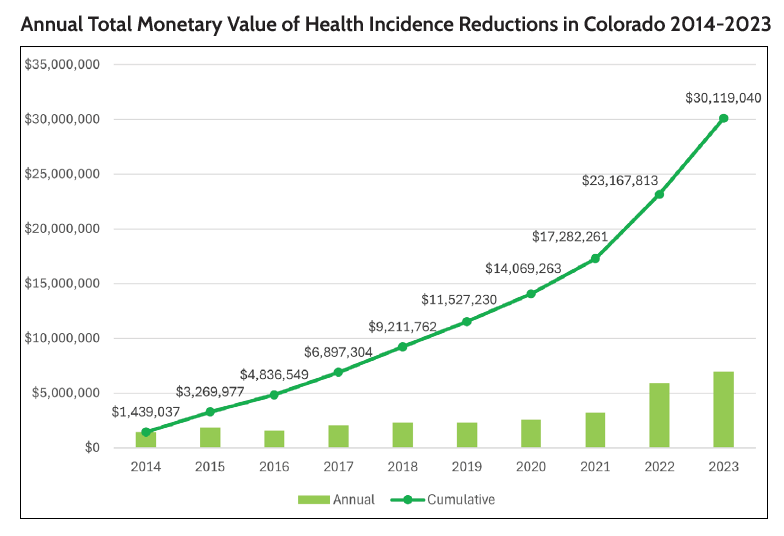Benefits of Residential Solar in Colorado
- Report

Download the Benefits of Residential Solar in Colorado report in full here and the 2 page summary here. Also see the summary content below. The report was completed for Solar United Neighbors by Strategic Economic Research.
The purpose of this report is to aid decision makers in evaluating the positive impact of residential net metered solar in the State of Colorado. The basis of this analysis is to study the direct, indirect, and induced impacts of small scale residential solar on the state’s total economic output, job creation, wages, environment, and public health.
Residential net metered solar refers to solar photovoltaic (PV) panels, which use sunlight to generate electricity installed on homes and residential buildings. These can be either rented or owned by the homeowner. The home consumes some or all of the electricity generated by the panels rather than purchasing all electricity from the local utility. During hours in which the panel is not generating electricity or the amount consumed is greater than the amount produced, the household purchases electricity from the local utility. If the panels produce more electricity than is consumed by the household during a period of time, that electricity gets fed back into the local power grid and flows to the nearest neighbor in need of electricity at that time. Net metering is a billing system that credits solar owners for the power that they generate and share with their neighbors. The term net metering specifically refers to a one-to-one credit system in which the amount of electricity provided to the utility is credited to the customer at the same price as the customer purchases electricity, also called the “retail-rate.” Net metered residential solar is typically governed at the state level.
The State of Colorado was home to more than 106,000 residential solar installations in 2022 (Statista, 2023). These residential solar installations in Colorado represent a total investment in excess of $938 million over the last 13 years. This residential solar development has resulted in the following:

Economic Impacts of Net Metered Residential Solar from 2011-2023 (2024$)
| Impact | Employment | Labor Income | Output |
|---|---|---|---|
| Direct | 1,548 | $200,506,528 | $1,079,953,912 |
| Indirect | 4,313 | $374,117,384 | $971,142,728 |
| Induced | 2,923 | $167,885,536 | $526,158,172 |
| Total | 8,784 | $742,509,448 | $2,577,254,811 |


Get the latest on solar straight to your inbox.
Fight for your solar rights.
Everyone has the right to go solar. Spread the sunshine nationwide and in your local community by taking action, joining events, and more.